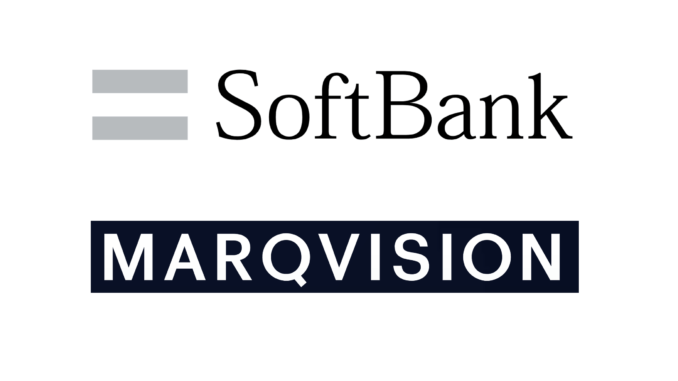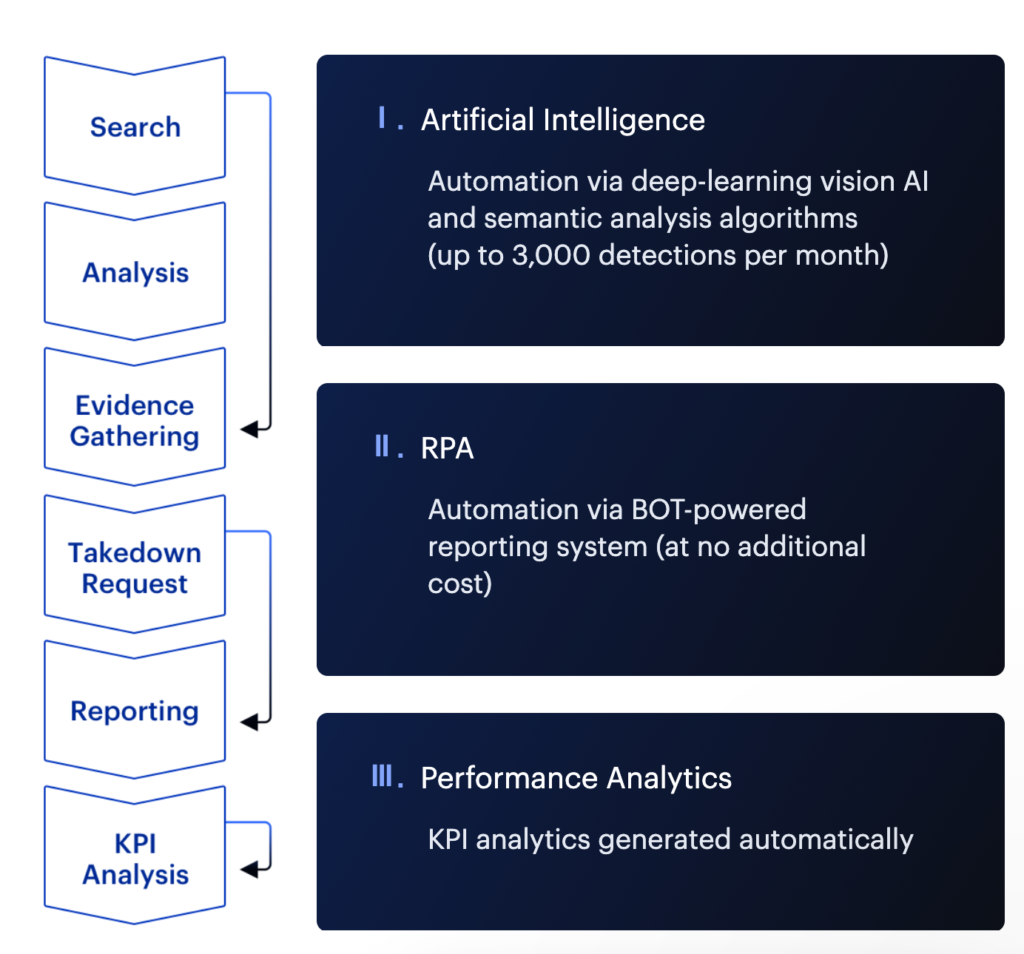
Giant Japanese conglomerate, SoftBank, which has backed WeWork and Uber, has made its first legal tech investment in the shape of MarqVision, an IP protection startup created by Harvard Law graduates. The company is now actively looking to partner with law firms.
The AI-driven and highly automated system was also backed by the legendary Y Combinator fund. The seed stage funding was for $5m. Bass Investment also took part and the money from SoftBank appears to have come from its Ventures arm, which focuses on young companies.
The funding follows MarqVision’s graduation from Y Combinator’s own incubator this summer.
All in all a very impressive start for a young company. So, what is all the fuss about? After all, there are many IP protection companies in the market already which do things such as active tracking of brand names, use of logos and other IP-related assets, to stop counterfeiting.
Here is how the startup explained why it is different: ‘MarqVision has modernised the traditional anti-counterfeiting process by using AI to automate the manual detection and reporting of counterfeits
‘The traditional anti-counterfeiting method involves IP specialists manually searching for infringements and doing the paperwork required to remove them. With MarqVision, brands can save time and money by automating the repetitive chores involved in detecting and reporting counterfeits.’
As the graphic below shows, they use a range of approaches, from machine learning-based vision, to semantic analysis of associated language, to the use of RPA to speed up reporting processes, to then gathering data to provide a dashboard of what is happening.

And perhaps it’s this bit about automation of not just the detection, but the paperwork around asking sites to take down what appear to be counterfeits, that has won the backing. As the company noted, fake goods now net counterfeiters $3 trillion globally – which seems hard to believe, until you browse eBay and other consumer market sites.
MarqVision said that it had experienced ‘rapid growth since launching in 2020, reporting a 50% monthly growth rate over the past six months’. Additionally, MarqVision reached $1m in annual recurring revenue (i.e. for annual licences that may then renew) after just nine months.
And making $1m at such a very early stage is indeed rare, and especially rare in the legal tech and adjacent fields. Clearly, the investors believe they have stumbled upon a really scaleable product.
Mark Lee, CEO and Co-Founder of MarqVision – which has offices in the US and South Korea, said: ‘The rate at which MarqVision is growing illustrates the universal problem of counterfeits. Our mission is to help brands, retailers and marketplaces navigate brand and IP protection, and this latest funding raise will allow us to do just that.’
While, JP Lee of SoftBank Ventures, added: ‘MarqVision is building a category-defining product in the IP protection industry using the power of AI technology. This investment allows MarqVision to accelerate its global expansion in both the US and Asia.’
With this seed round, MarqVision will expand the company infrastructure and increase enforcement capabilities in Asia. Additionally, the company has launched its newest product, an anti-piracy software to protect global content in the gaming, entertainment and animation industries.
MarqVision expects to hold another raise in 2022, the company added.
Is this a big deal?
In short, yes. Although this money appears to have come from the Ventures arm and is nowhere near the kind of sums SoftBank has sunk into companies such as WeWork via its Vision Fund, having such a massive backer is highly notable. And, as far as Artificial Lawyer can see, it has never invested in a legal tech company before.
Could MarqVision become a tech giant? A unicorn? It’s possible. If a large number of the world’s major manufacturers and fashion retailers start to use it as the ‘market standard’ then massive growth is possible.
Of course, there are other IP protection companies out there. For example, UK law firm Wiggin has its own quite advanced brand protection tool. Meanwhile LexisNexis has partnered with Appdetex to deliver an IP tool. And there are many others, just see this list provided by Capterra.
But, as many legal tech companies have found, the secret to success is not just in having some of the needed software capabilities, but putting them all together with good UI/UX, easy and intuitive workflows, great support and customer service, and a pricing model that is simple and makes sense. And, of course, it all just works.
Time will tell if MarqVision can break through the incumbents and grow as fast as its backers no doubt want it to. Good luck to them.
2 Trackbacks / Pingbacks
Comments are closed.